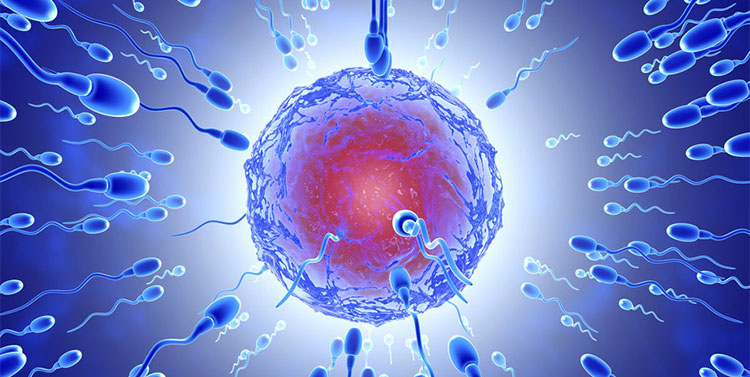Frozen sperm can live in space
Frozen sperm still survives after exposure to the micro-gravity environment, opening up the possibility of outer space sperm banks.
At the meeting of the European Society for Reproduction and Embryology in Vienna (Austria) on June 23, Spanish scientists presented testing on 10 healthy sperm samples in micro-gravity environment, ie The environment in which the impact of gravity is limited, the objects have almost no weight. These samples were then analyzed for DNA concentration, mobility, vitality, morphology and fragmentation. The results show that there is almost no difference between sperm in the condition of the earth and sperm is exposed to micro gravity.

There is almost no difference between sperm in the Earth and sperm in microscopic environments.
Dr. Montserrat Boada from Dexeus Women's Health Hospital in Barcelona, who presented the experiment, emphasized new research at an early stage and needed further implementation. However, the results open up the ability to transport sperm, even build nests outside the Earth.
"When the number of outer-space missions increases over time and is increasing, it is necessary to study the impact of the universe on human bodies , " Dr. Boada said. "It is not unreasonable to start thinking about fertility outside of Earth."
Previously, some works showed that radiation from the universe could have a long-term impact on the brain, affecting learning, memory, multitasking and mental health. Space travel makes astronauts reduce bone weight, blood volume and muscle atrophy. Also, the longer they stay in space, the more likely they are to have herpes, chickenpox and shingles.
In the coming time, the Spanish authors will test on more sperm samples, extend the time of exposure to the micro-gravity environment and use fresh sperm instead of frozen sperm.
- NASA sends . sperm to ISS space station
- Future sperm bank on the Moon
- Twins due to frozen sperm for 26 years
- Create pandas from frozen sperm
- Black-footed ferrets are born from frozen sperm
- Frozen sperm for 15 years still live
- Create baby elephants from frozen sperm
- The first American baby was born from frozen sperm and eggs
- NASA sends ... sperm to ISS space station
- Sperm are produced like?
- Twins are born more than 2 years apart
- Interesting surprises you never knew about sperm
- How long does sperm live outside the body?
 13 causes of non-itchy rash
13 causes of non-itchy rash How the mouse with human ears changed the world?
How the mouse with human ears changed the world? The truth about 'fried rice syndrome!
The truth about 'fried rice syndrome! What is dental implant?
What is dental implant?